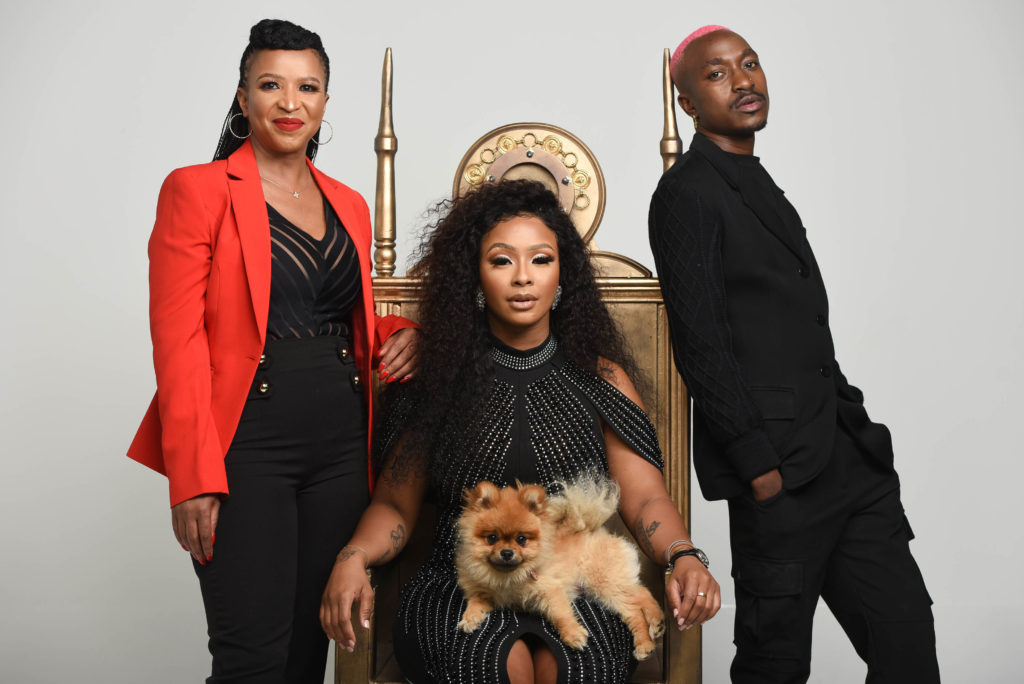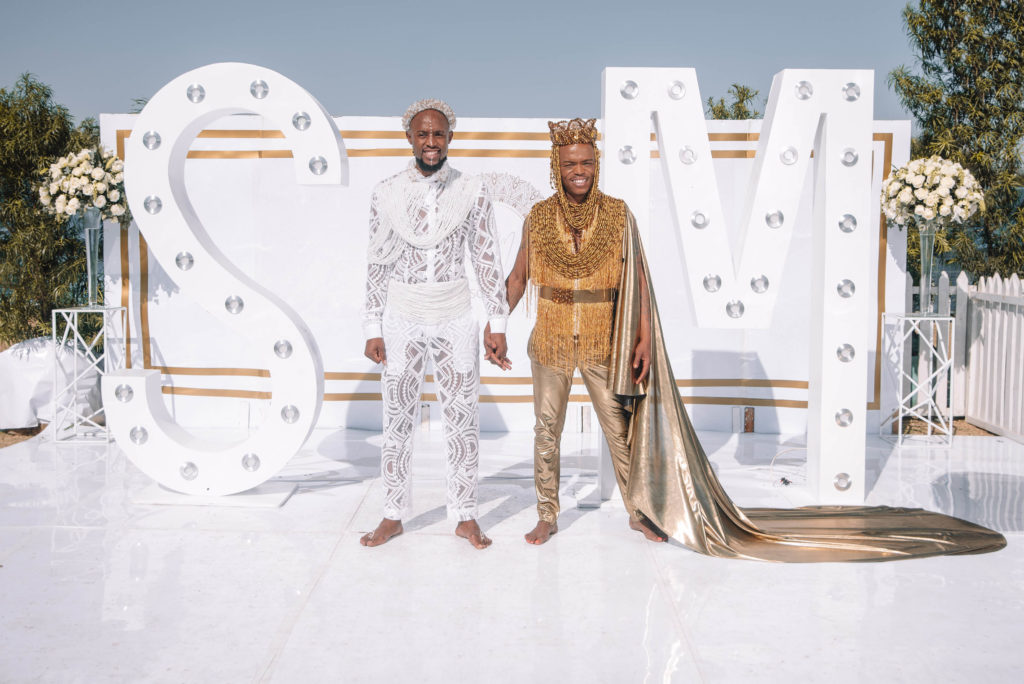Boitylicious: A screengrabs from Boity’s reality show, Own Your Throne. The first episode of 13 in the season was broadcast on BET Africa on Wednesday
‘Shit, in celebrity years I’m a grandma,” scoffs Boity Thulo (30). The television personality-turned-rapper sits in one of Viacom’s common rooms for a series of media interviews in preparation for the debut of her reality show, Own Your Throne, on BET Africa.
After playing the fame game for 10 years, Thulo uses the word “exhausting”, a sigh, and an eye roll to describe the highs and lows that she has experienced so far. “There’s no such thing as normal, I always have to anticipate being seen and discussed.” In spite of her fatigue, she has committed herself to a life in the limelight because she doesn’t see herself doing it any other way.
Own Your Throne is produced by veteran production house, Red Pepper Pictures, which pitched the idea to Thulo for three years before she was interested. She says she eventually assented to the idea because she felt as if she owed it to her supporters to show them her candid self now that she is financially and socially secure enough to do so.
Much like its predecessors, the first episode of Own Your Throne allows the viewer into the affluent and safe spaces that the protagonist occupies. Apart from the seemingly candid interactions with her mom and a glimpse into Thulo’s ubungoma practice, the show follows a conventional formula. Viewers see a celebrated figure in their home, driving their SUV, going about their day to day business and facing minor adversities, such as having to deal with a makeup artist running late. There’s always a supporting cast member whose narrative is used much like b-roll in between scenes about the sterring. With the exception of outfit, task and theme changes, the show’s episodes tend to follow this same hum-drum order. But covered in affluence, the monotony continues to look attractive week after week. Yet celebrities with reality shows continue to make waves that result in countless memes, trending hashtags and increased online followers.
 In addition to getting to know Boity, Own Your Throne gives viewers a glimpse into the personality’s mother Modiehi Thulo and prodigy Bob Sithole. (Supplied)
In addition to getting to know Boity, Own Your Throne gives viewers a glimpse into the personality’s mother Modiehi Thulo and prodigy Bob Sithole. (Supplied)
“There’s a concept in media studies known as the super peer,” says Oupa Makhalemele, the acting research manager in the research, policy and advocacy unit of the Film and Publication Board (FPB). According to Makhalemele, a super peer is someone in the public sphere who seems to have their life under control.
Through information garnered from focus groups, the FPB has found that, without knowing it, viewers who consume this often blemish-free, self-correcting, adversity-free curation end up immersing themselves in the lives of the people they see portrayed. “This is where binge-watching comes in,” Makhalemele adds.
Of the 13 episodes that will make up the first season, Thulo is yet to film the last three. To actualise Own Your Throne, she and Red Pepper Pictures had to work out a filming schedule on a weekly basis. As much as the show is reality, it’s television that needs to be filmed by a crew who needs to be paid. “It costs money so we can’t have a camera crew following me 24-7,” Thulo says. Instead, the schedule ensures that the crew is there to film when Thulo has something worthy of being captured.
https://www.instagram.com/p/B7_Q5W6HPJ3/?utm_source=ig_web_copy_link
When the Mail & Guardian asks about how scripted Own Your Throne set out to be, Thulo says viewers will see “things that I was already going to do, I just happened to schedule in a camera crew. I’m too old to be scripting shit,” she laughs.
So, as well as refreshing an existing public figure’s portfolio — in the case of mainstay names such as Thulo, Bonang Matheba and Somizi Mhlongo — what reality shows offer their protagonists is the opportunity to steer the public’s perceptions in a favourable direction. Thulo says she hopes that the show rids people of any ideas that make it seem as if she is a people-pleaser. “I look forward to the days when I no longer have to censor myself and slowly work at showing people the real me,” she says, sitting at the edge of her seat.
With regards to self-inflicted surveillance and ensuring that she and her family continue to be safe and are provided a level of privacy, Thulo says she could agree to having a reality show only if she could have the final say on what can and can’t be captured. For instance, the camera crew is allowed in her house and backyard, but never upstairs where her and her mother’s bedrooms and bathrooms are situated. “Why would you want to know what my bed looks like — that’s literally none of anyone’s business,” she says.
Giving the people what they want to watch
 Rite of passage: The Somizi & Mohale Union is a forthcoming reality wedding special, produced by The BarLeader. (Nkatekoda)
Rite of passage: The Somizi & Mohale Union is a forthcoming reality wedding special, produced by The BarLeader. (Nkatekoda)
Own Your Throne is the first local reality show to air on BET, but it follows formats similar to the likes of Nonhle Goes to Hollywood (Vuzu), Dineo’s Diary (Vuzu), Being Bonang (One Magic), Living the Dream with Somizi (Mzansi Magic), and Have Faith (MTV Base).
In a journal article titled Star Image, Celebrity Reality Television and the Fame Cycle, Ruth Deller from Sheffield Hallam University argues that, depending on the content and the status that the figure is afforded beforehand, reality TV shows can help household names “expand, enterprise, enhance, exhume or exit” their fame.
Here in South Africa, it’s almost as if shows of this kind have become a rite of passage for household names. This is fitting in a market in which charismatic folk are no longer at the mercy of modelling agencies, presenter-search television shows and radio shows to become popular. YouTube, Instagram, podcasts and Twitter have put the public-figure label within reach. In this context, reality shows offer prestige, as they keep the long-standing public figures in the limelight, while the new-age social media figures flood our timelines.
Reality shows may be a kind of reference library for quotable lines that can be transferred into our everyday lives, but they do not serve the audience. Instead, they work at getting viewers to talk about their protagonists.
Once the duty of serving the protagonist is fulfilled, reality shows of this nature benefit the platforms that choose to broadcast them.
In a newsletter targeted at the media, on-demand streaming platform, Showmax said it appears as if reality television is taking over in South Africa. The newsletter reads: “Of the 10 most-streamed local series on Showmax in 2019, four were reality shows: The Real Housewives of Johannesburg, Being Bonang, The Bachelor SA and Boer Soek ’n Vrou.”
So far 2020 has seen Kwa Mam’Mkhize following suit. This show documents the post-divorce-life of Durban-based business mogul, Shauwn Mkhize. Kwa Mam’Mkhize is broadcast on Dstv’s Mzansi Magic and produced by The BarLeader, the production company behind the reality series Being Bonang and upcoming wedding special, The Somizi & Mohale Union.
After its premier in the second week of the year, Kwa Mam’Mkhize has already made Showmax’s top-seven most streamed list for January.
The Showmax newsletter describes the reality show as “a huge hit on Twitter, where the commentary is almost as entertaining as the show”. This illustrates the way in which reality shows serve broadcasters and streaming platforms by causing national social media engagement that encourages more viewers to consume the content.
“It’s about what people want to see,” says Monde Twala, the vice-president of the South African division of Viacom that runs BET Africa and MTV Base. These channels, together with Mzansi Magic, One Magic and Moja Love, broadcast the bulk of South Africa’s local reality shows. Although Twala doesn’t directly speak to why there is an increasing number of reality shows on these channels, he says, “If you just look at social media and the level of following that [Thulo, Lasizwe and Faith Nketsi] have on social media, obviously there’s something there that audiences are interested in. That’s why we buy into it.” — Zaza Hlalethwa